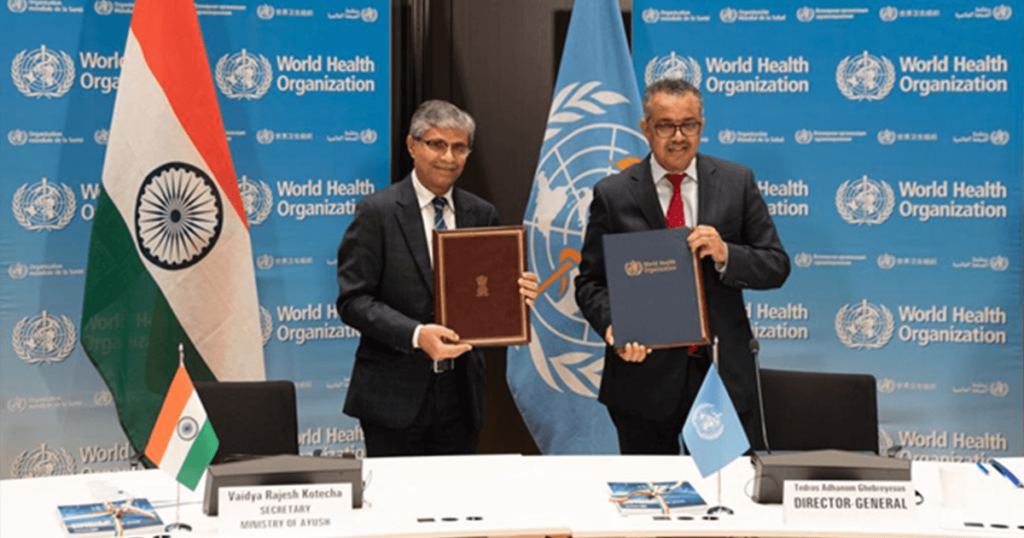The 7th of April 2022 marked the 74th anniversary of the founding of WHO in 1948 which is celebrated annually as ‘World Health Day’. Each year draws attention to a specific health topic of concern to people all over the world. The onset of the pandemic has created history and has affected billions of people worldwide. Meanwhile increases in conditions such as cancer, heart disease and environmental concerns such as pollution still contribute towards the wellbeing of people.
Traditional Medicine systems
TM is the “sum total of knowledge, skills and practices based on the theories, beliefs and experiences indigenous to different cultures that are used to maintain health, as well as to prevent, diagnose, improve or treat physical and mental illness” and varies depending on the region. For example, some TM systems exist by word of mouth where they are passed down from generation to generation. Others are supported by records of concepts- practical and theoretical- and volumes of literature. Many regions heavily depend on their own TM to treat health concerns.
India has around 45,000 different species of plants of which 15,000 are medicinal; 500 species of these are used for preparing medicines. The Indian system of medicine incorporates Ayurveda, Siddha, Unani and Homeopathy. It uses ancient plant base texts and has recorded a vast volume of plants that have been used for medicinal preparation for centuries. India has exploited herbal medicines and medicinal plants for enhancing health and curing illnesses in rural and tribal regions within the country. Indigenous people today are evidence of the historical continuity of herbs and plants for medicinal-use still exist to this day. TM systems have significantly contributed to meeting global healthcare needs and will do for the foreseeable future.
During the Covid crisis where access to modern medicines, vaccinations and health service providers was limited, the next best alternative was shifting the focus towards building immunity. Traditional Indian medicinal mixtures such as turmeric & milk and Kadha that were incorporated into daily routine proved as immunity boosters. This further highlighted the importance of integrating such valuable and traditional knowledge into modern healthcare. The Government of India incorporated Ayurveda as a primary segment in India’s health policy. The National Commission for Indian System of Medicine and the National Commission for Homeopathy were formed. In the medical education syllabus, basic knowledge of Ayurveda in allopathy are emphasized and encouraged.
Comparatively, the TM system in Africa is also among the oldest, and heavily relied upon by locals for 2 main reasons:
The use of medicinal plants is the most common TM practice across Africa, and indeed Africa holds large biodiversity resources that contains up to 45,000 species of plants- of which 5,000 are used for medicinal purposes- with potential for development. However, these natural areas are subject to deforestation at a rate of 1% per annum and have the highest rate of endemism. Thus, in-spite of this medicinal potential and diversity, the African continent has only few drugs commercialized globally.
Another vertical is the Chinese TM system. Chinese massages and acupunctures have been well known in the western world. However, clinical diagnosis and Chinese herbology are important components of TM in China. Chinese TM incorporates all principles and accentuates being at harmony with the universe. Causes of diseases are characterized into external and internal causes, which further differentiate the conditions according to the 8 principles: interior, exterior, yin, yang, deficiency, excess, cold, and heat. Chinese herbal medicine encompasses plants and medicinal use of minerals and animals.
TM in China has been used over thousands of years and has experienced modernization over time. Medical practices in China incorporate Western medicine, TM and the best practices of Mongolian and Tibetan medicine.
Integrating modern technology with traditional practices
With 80% of the world relying on TM for treatment of diseases, the centre harness modern science to enhance the TM system’s evidence base. Additionally, 40% of approved pharmaceutical products that are routinely used are derived from natural substances. Traditional formulations of aspirin used the bark of the willow tree; contraceptive pills were developed from the roots of wild yam plants; child cancer treatments have been based on the rosy periwinkle.
As more technological disruptors become more easily available, the modernization of TM is rapidly progressing. Artificial intelligence maps evidence and trends and screens natural products or pharmacokinetic properties. Functional MRI studies brain activity and relaxation responses of traditional medicinal therapies including yoga and meditation.
The centre will be based in Jamnagar, Gujarat and will engage with and benefit regions worldwide. Policies and standards regarding the practice and products of TM will have a sound evidence base, and different nations will be assisted the effective incorporation into health systems to regulate safety and quality. The four main strategic areas of the centre will optimize the contribution of TM towards global health and sustainable development, through AYUSH- Ayurveda, Yoga, Naturopathy, Unani, Siddha, Sowa-Rigpa and Homeopathy- systems:
The WHO global centre for TM will be launched later this month, on the 21st of April 2022 in Jamnagar, Gujarat, India. The WHO GCTM will help develop tools, guidelines, standards and methodologies for gathering data, conducting analytics and assessing the impact of TM use. It will also provide on-site and web-based training programmes, deliver artificial intelligence-based solutions and generation of evidence and innovation while collaborating with WHO Academy, Cochrane and other partners while using existing TM data banks, research institutes and virtual libraries. A Joint Task Force (JTF) comprising of representatives from the Indian Government, the World Health Organization and Permanent Mission of India, Geneva will coordinate, execute and monitor activities for the establishment of the Centre. With India being known for its TM system, deep spiritual understanding and rich conventional wisdom the establishment of WHO GCTM is no less than a huge honour for the country.
traditional, medicine, center, WHO, world health day, India, Gujarat, modern science, technology, evidence base, global




